26, September 2024
UN Conference on diversity holds in Nairobi 0
A UN conference on climate diversity and desertification, held on the theme “Greening the African Horizon” took place in Nairobi, Kenya, on 17 September 2024 with Africa taking center stage in efforts to restore degraded landscapes, protect biodiversity and build sustainable livelihoods for its citizens.
Dubbed as the GLF Africa 2024 hybrid conference greening the African Horizon, the event brought together thousands of participants from local communities, indigenous peoples, youth leaders and policy makers, as well as innovators to showcase Africa’s immerse potentials.
Speaking at the event, the CEO of the Center for International Forestry Research and World Agroforestry (CIFOR-ICRAF), Eliane Ubalijoro, said that the event was designed to showcase Africa’s immense potential to construct a resilient equitable future through its landscape.
“Together, we have the power to green Africa and beyond- for food securing livelihoods, food security, climate resilience and biodiversity conservation. Land and community are the common denominators for achieving these goals. Though the climate crisis presents immense challenges, Africa holds immense potentials of rich and local indigenous knowledge, innovative solutions, youth leaders, brilliant minds and emerging technologies,” she said.
Also speaking at the event, Elijah Mboko, National Technical Specialist at FAO Kenya said that “As we bring in new tools and approaches, we should look at how to best integrate them into the existing functional systems so that we don’t start from zero to distort what is ongoing on the land. We don’t want to work in isolation; we want to strengthen that system.”
By integrating local knowledge with cutting-edge technology and the latest science, the GLF is creating an AI hub to promote community-driven AI solutions that challenge the status quo. It will connect landscape actors and create interdisciplinary alliances to foster collaboration, innovation and inclusive knowledge.
Catherine Nakalembe, Associate Research Professor at the University of Maryland and Africa Program Director at NASA Harvest, who also attended the event pointed out that Africa needed to design systems that fitted the African context.
“We need to design systems that are appropriate for the context of Africa. We need data from the places that we’re trying to understand to build better models. Let’s say, foe Western Kenya, we need a context-aware model that can interpret intercropping in small-scale practices,” she said.
A key aspect of restoring forest is planting trees, which in turn requires effective tree seed and seedling delivery systems. During a session hosted by CIFOR-ICRAF, panelists and participants emphasized the need to develop a market for demand-driven native tree species to engage communities through participatory approaches and to share knowledge and resources broadly through stakeholder networks such as the nascent Transformative Partnership Platform (TPP).
Also present at the event, the Senior Manager for the Youth Leadership Program at the African Wildlife Foundation, Simangele Msweli, underscored that youths made a critical mass of the population. “70% of the African population is under the age of 35. Youths make up a very critical mass of the population. The biodiversity and climate crisis requires a whole-of-society approach-everyone must take action,” he said.
“There is a need to decolonize how we do climate justice and land restoration. Whatever has happened on other continents, whatever the donors and the granters are saying might not be the solution for Africa. There is a need for Africa to come up with African solutions. There is a need for women to be involved in coming up with solutions to land issues that are upon them,” said Deborah Oyugi, English Countries Manager and Safeguarding Lead at Youth Initiative for Land in Africa (Yilaa).
By Cecilia M. Manjang
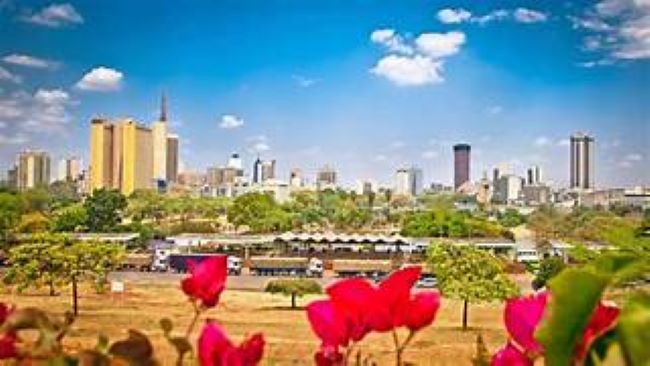
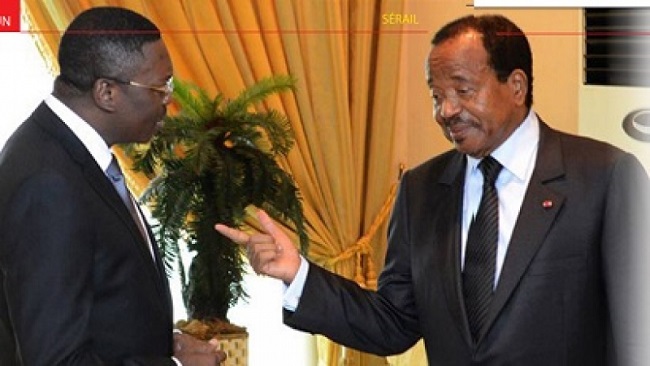
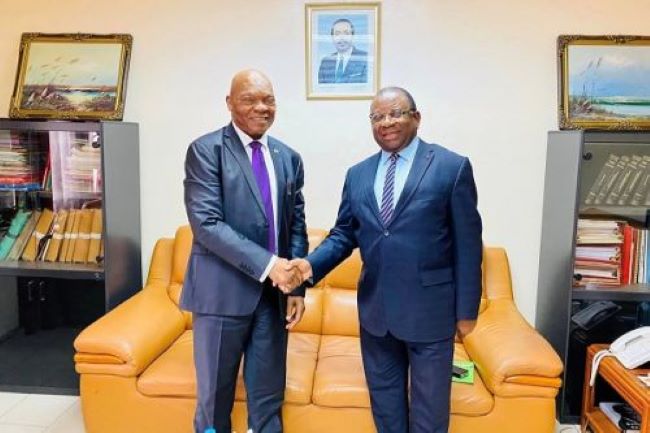

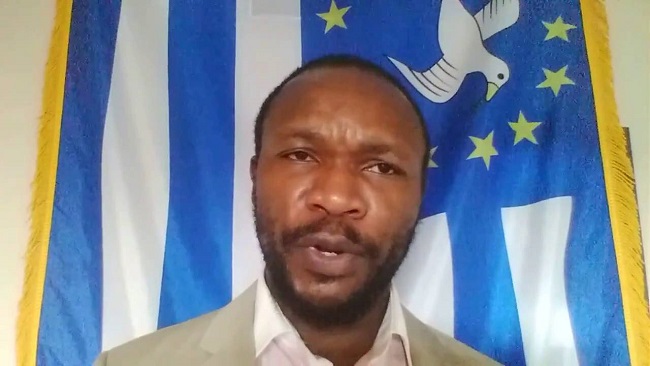

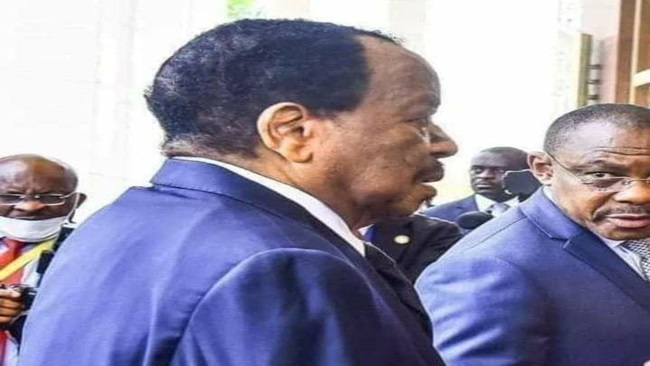

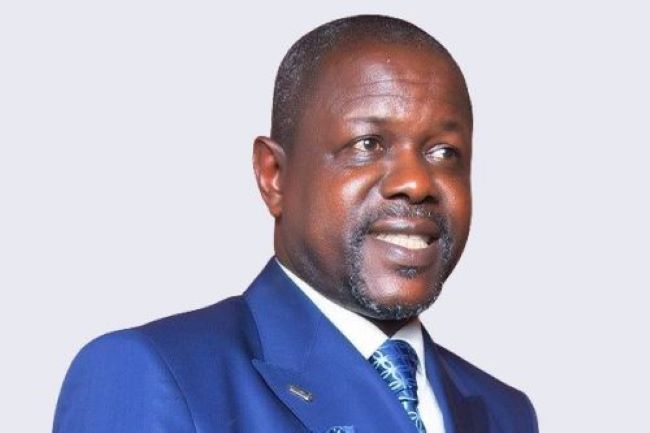












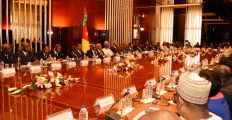




26, September 2024
Ambazonia at the United Nations: The Speech of Vice President Dabney Yerima 0
The neglected eight-year war in Southern Cameroons and the urgent international action to end it
The ongoing mass killing of Southern Cameroonians by French Cameroon in the Federal Republic of Ambazonia, marked by systematic violence, widespread displacement, and the persecution of innocent civilians, continues to be met with disturbing silence and inaction from the international community.
The conflict which has claimed some thirty-two thousand lives, torn apart communities and displaced about 5 million people is a glaring example of a human rights crisis that demands urgent attention.
Despite a compelling body of evidence of genocide, crimes against humanity, and other atrocities by Biya’s armed forces ranging from extrajudicial killings of men women and children, to the destruction of villages, schools and churches used as military camps, raping of women, girls and children, looting of property by the French Cameroon invading military, global powers and international institutions have failed to respond with the seriousness the situation deserves.
This neglect has allowed the situation to deteriorate, deepening the suffering of the Ambazonian people and emboldening Paul Biya and his invading military sponsored by France which is responsible for the violence and human rights abuses.
The recent trend of arresting, abducting, and incarcerating Ambazonians in the Diaspora is not only a violation of their fundamental rights but also a misguided approach that will not resolve the crisis. These actions, aimed at silencing voices advocating peace, justice, and self-determination, only exacerbate tensions.
We, the leaders of Ambazonia, categorically state that arresting Ambazonian leaders abroad will not bring about peace. The international community must recognize that repression and intimidation will not end this conflict.
I have followed the ongoing general assembly meeting of the United Nations hoping that some world leaders would site what is going on in Ambazonia as one of the ongoing conflicts in the world today, strangely, none of them mentioned it. Some world leaders would cite Russia, Ukraine, Israel, Palestine and Sudan, but will never think of the conflict in Southern Cameroons.
President Biden had a great speech but omitted the conflict in Ambazonia even though interestingly he called on the UN to go back to their main objective of promoting and fighting for peace around the world. He also emphasized the force of people’s power.
The President of the United Nations General Assembly, Philemon Yang, a born Ambazonian, on the other hand did not make mention of the genocide going on in Ambazonia which he could not resolve through peaceful dialogue when he was head of government in Yaoundé. He is calling for a two-state solution for the conflict between Israel and Palestine. What a paradox! Ask Yang to leave the current UN Session and spend a week in his village, Oku, in Ambazonia. He will tell you, over his dead body because he has the blood of innocent Ambazonians on his hands.
What Ambazonia and the people in the region need is not more violence or punitive measures but genuine and meaningful discussions which address fully and definitively the root causes of the French Cameroon-Ambazonia armed conflict. The key to resolving this conflict lies in dialogue. We call upon the international community, especially key stakeholders such as the United Nations, the African Union, the European Union, and major world powers, to push for a peaceful resolution through negotiations without pre-conditions.
The International community should note that the genocide in Ambazonia will not be resolved by arresting, abducting or incarcerating Ambazonians.
The people of Ambazonia have the right to self-determination and to live free from fear and persecution. The international community’s continued indifference is unacceptable. It is time for the world to act decisively, to bring both sides to negotiate a peaceful and just resolution, and to address the root causes of the conflict. We shall not be intimidated; we are bold and resilient because self-determination is our basic human rights. We will continue to fight for our liberation. We will continue to fight for our inalienable right to govern ourselves in peace, justice and security.
We stand firm in our belief that the future of Ambazonia must be determined by the people of Ambazonia themselves and no one else, not by the unlawful detention of those seeking to voice the legitimate aspirations of the Ambazonian people.
All evidence points to the fact that it is Biya and his civilian and military collaborators who ought to be in a dock. Ambazonia is a land founded on democracy and Justice.
The rule of law is the basic tenet in Ambazonia. Justice shall prevail!
The time for negotiations is now. Arrests and abductions will not stop our will and the will of a people who are determined to live in peace, dignity, and freedom. We urge the international community to stop turning a blind eye and take active steps towards peace in Ambazonia. I call on all comrades around the world to celebrate our Independence Day this year like never before. Let our voices be heard in Canada, Ground one, and Ground two and Ground zero, Rome, South Africa and the United States of America with the slogan, “No to the War in the Southern Cameroons and Yes to peaceful negotiations.”